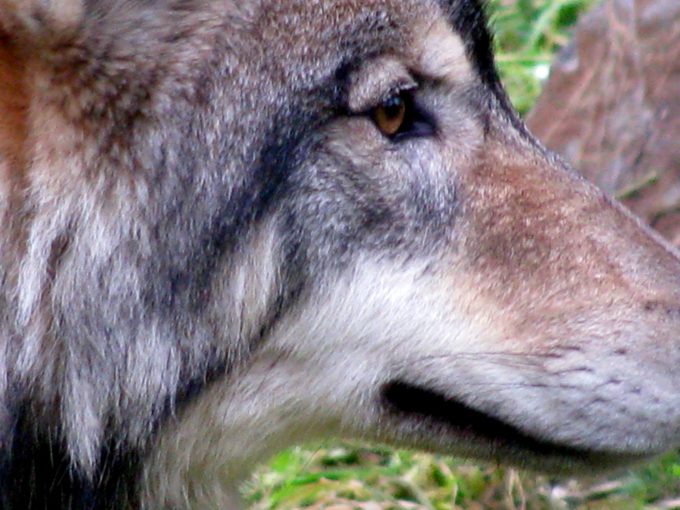
Gray wolf. Photo: Jeffrey St. Clair.
In a painful example of why states can’t be trusted to manage gray wolves, the Idaho Legislature seems to be fast-tracking Senate Bill S.1211, which aims to slash Idaho’s wolf population by as much as 90 percent. The bill would inappropriately transfer the traditional roles and responsibilities of the Idaho Fish and Game Commission to the Legislature, where management would be strictly politicized and any pretense of science thrown out the window.
If passed into law, 1211 would allow an unlimited number of wolf tags per hunter, no restrictions on methods of take, establishment of year-round trapping seasons on private lands, and allowing the state Wolf Depredation Control Board to hire independent contractors to kill wolves. The bill would allow wolves to be killed using any method available for other wild canids–including aerial gunning and, potentially, deadly poisons. And it allows wolf tags to be used for hunting, trapping, or snaring in any unit when seasons are open at the time of take. This proposed legislation comes on the heels of newly expanded wolf hunting and trapping seasons for much of Idaho adopted by the Idaho Fish and Game Commission in February.
The use of wolves as a political pawn is an affront to science-based management of wildlife, and only proves that state management of wolves and other predators without federal oversight is a recipe for extinction. Idaho’s wolf population was removed from Endangered Species Act protection by legislative rider in 2011, and wolves were removed from Endangered Species Act protection nationwide just last year. There is no valid justification in all of wildlife management for this kind of radical reduction of a native species, so far below the natural carrying capacity of the environment.
In Wyoming, wolves can be killed without license or bag limit, at any time of year, across 85 percent of the state. This Idaho proposed legislation adopts many of the same management-free wolf killing provisions, and seems to be aiming for the same result: extirpation of wolves across most of the state. This is the opposite of sound wildlife management; it’s a free-for-all.
If S.1211 were to pass, it would put further pressure on the U.S. Fish and Wildlife Service to list the Idaho gray wolf under the Endangered Species Act, as well as undermine the agency’s rationale for nationwide wolf delisting. Over 500 wolves were killed in Idaho in 2020 — approximately half of the 2019 year-end population. The state seems bent on making the case that wolves need to be listed as endangered in Idaho once again.